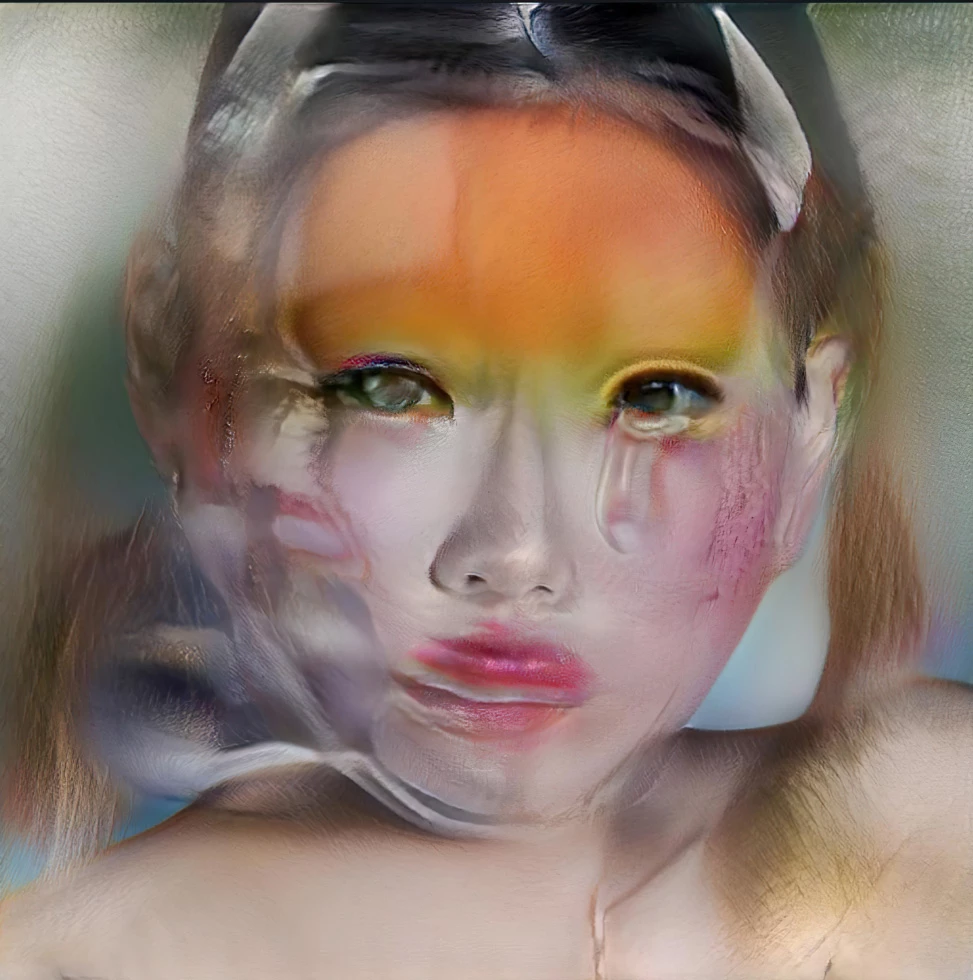
- Date
- 17 NOVEMBER 2022
- Author
- DAVIDE ANDREATTA
- Image by
- CLAUDIA RAFAEL
- Categories
- Beauty
What comes after the skin? An interview with Claudia Rafael
Claudia Rafael is an Art Director and Digital Artist whose practice is distributed among various fields such as music, fashion, art and culture. Her work as a digital artist focuses on issues of technology, extended and mixed realities, social norms. We interviewed her to discuss AI, beauty, the emancipatory use of digital tools and what future awaits us.
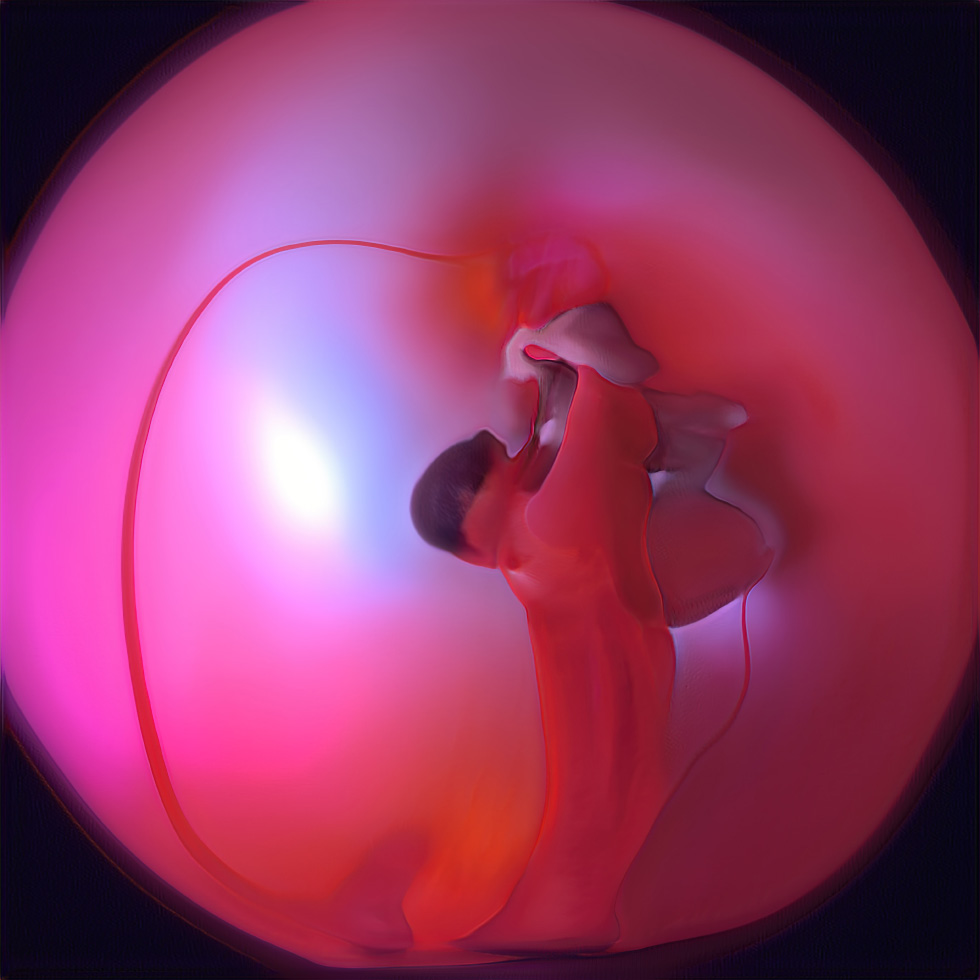
What your work suggests is that the skin does not have, if any at all, the purpose of setting a perimeter; instead, it is an effective means to stretch one’s own identity. Is Artificial Intelligence a way to expand this movement (quantitative change) or is it a radical reinvention of the skin (qualitative change)?
With technology we can alter the digital appearance of our bodies, which enables us to develop more personal and abstract interpretations of our physical selves. Using technologies to change circumstances, which are dictated by nature towards an individual approach to beauty, has a huge emancipatory potential for self-realization. Digital tools and resources to learn how to use them have never been more available as they are today.
The easy accessibility of tools like Artificial Intelligence opens up the possibility to develop a novel approach on beauty. Using these tools in an emancipist way will free what is considered beautiful from the current social norm. Artificial Intelligence exists in the digital world while we are existing in the physical world. Emerging approaches on beauty in these combined realities influence each other and therefore will change each other.
If the skin is a surface, what happens when it shatters? What role plays AI in its mending or in its destruction?
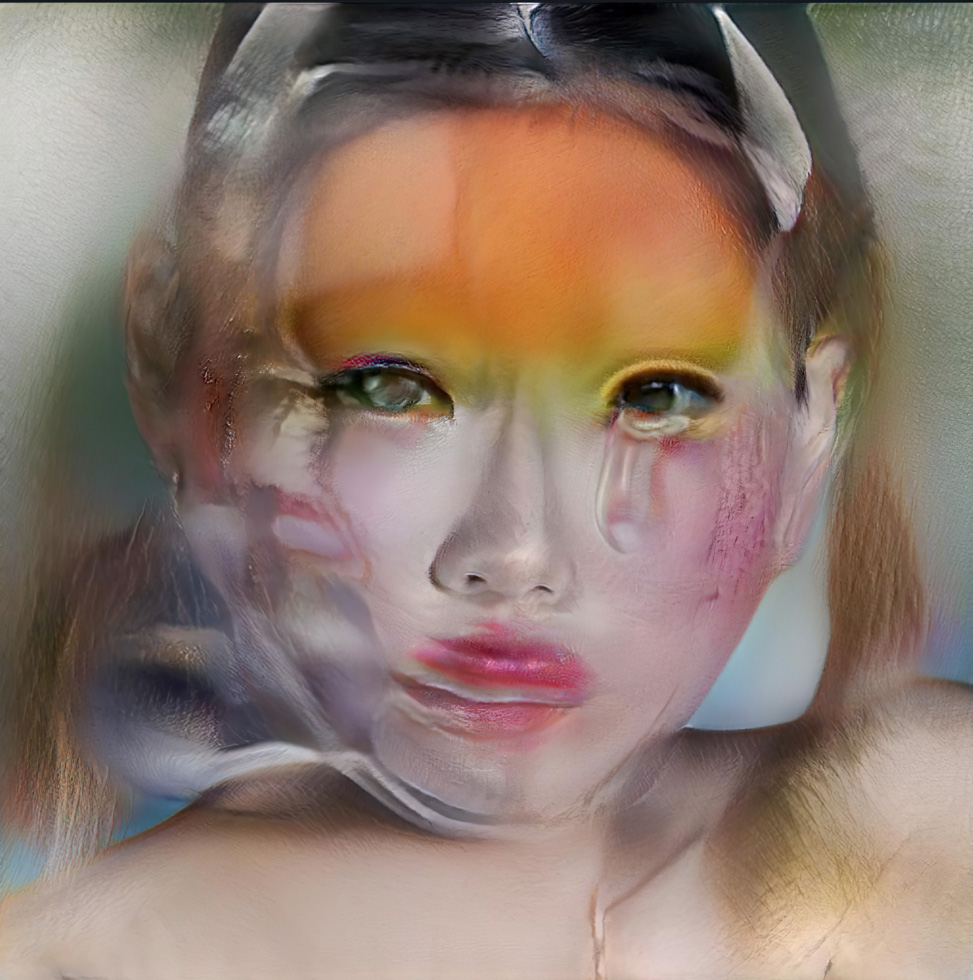
Do you believe that through AI we will be able to molt? Is Artificial Intelligence a step towards hybridization?
The socially accepted norm of “beauty” is being substituted by strategies to become different. Alienation is used as potential for distinction thus turning socially normed otherness into a new way to create a differentiated beauty. Artificial Intelligence as well as Augmented Reality enable the relief of YOUR idea of beauty that lives in YOUR body and mind. While it was first about hiding the technology, which was used to make yourself appear “more beautiful”, like e.g. retouching skin. Now the use of technology is embraced instead of being seen as untruthful and bad. Technology gets used proactively and expressively to alter the digital appearance and therefore influences the physical.
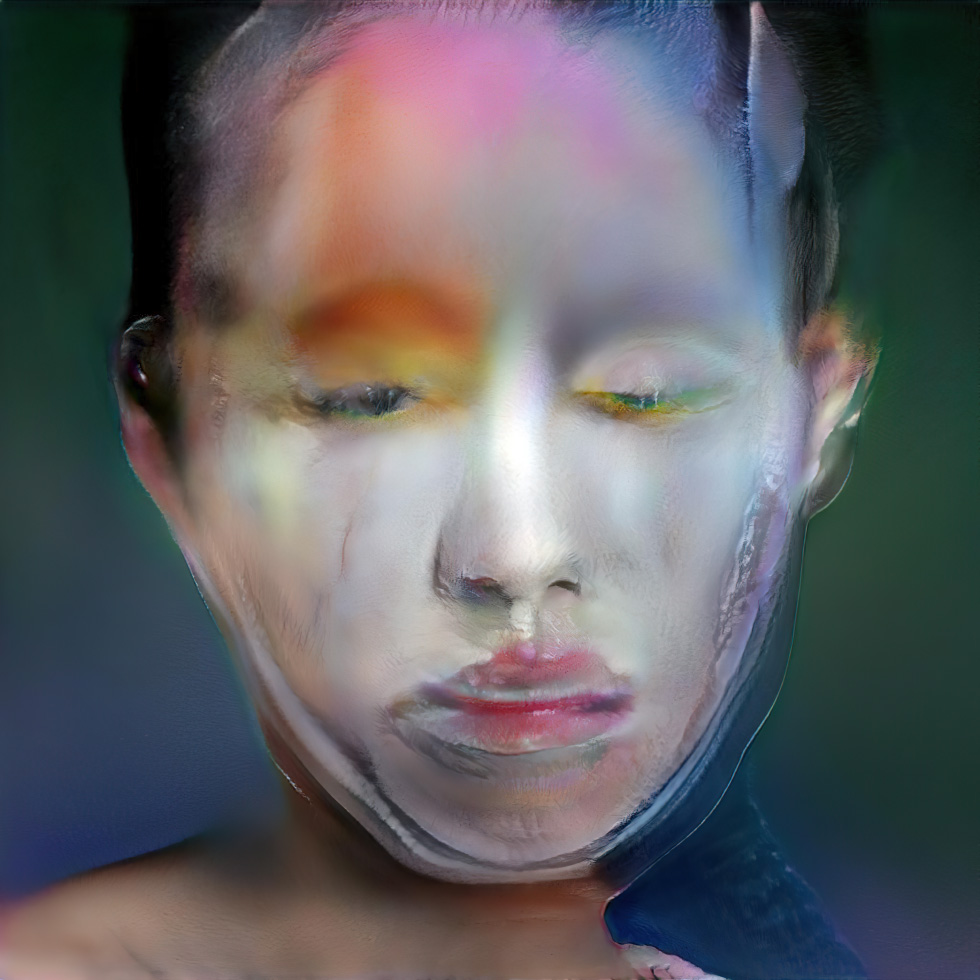
Thanks to your videos one can literally move through the skin’s layers, immerse oneself into this dermal abyss that AI has the ability to expand infinitely: have you learnt something new about yourself or others during this endless delving?
While in the age of the natural, beauty was altered only to the amount to which it still seemed biologically plausible. It was claimed that you look the same way you look in the virtual world as you look in the physical world. In techno-expressive times, altering beauty with the help of technology gets more expressive and digital bodies get more and more alienated from physically possible forms. The A.I. Beauty portraits, I collaborated on with the UK collage artist Mat Maitland, grew around those concepts: each image is an investigation that revolves around a series of altered singularities, an evolution of beauty in progress. Showing how traditional norms have turned into a more adaptable and flexible vision where Artificial Intelligence forces its own evolution – a transformation of modulating colors, to then dissolve into physical traits that outline and define an individual. An ever-evolving and expanding concept of 'beauty'.
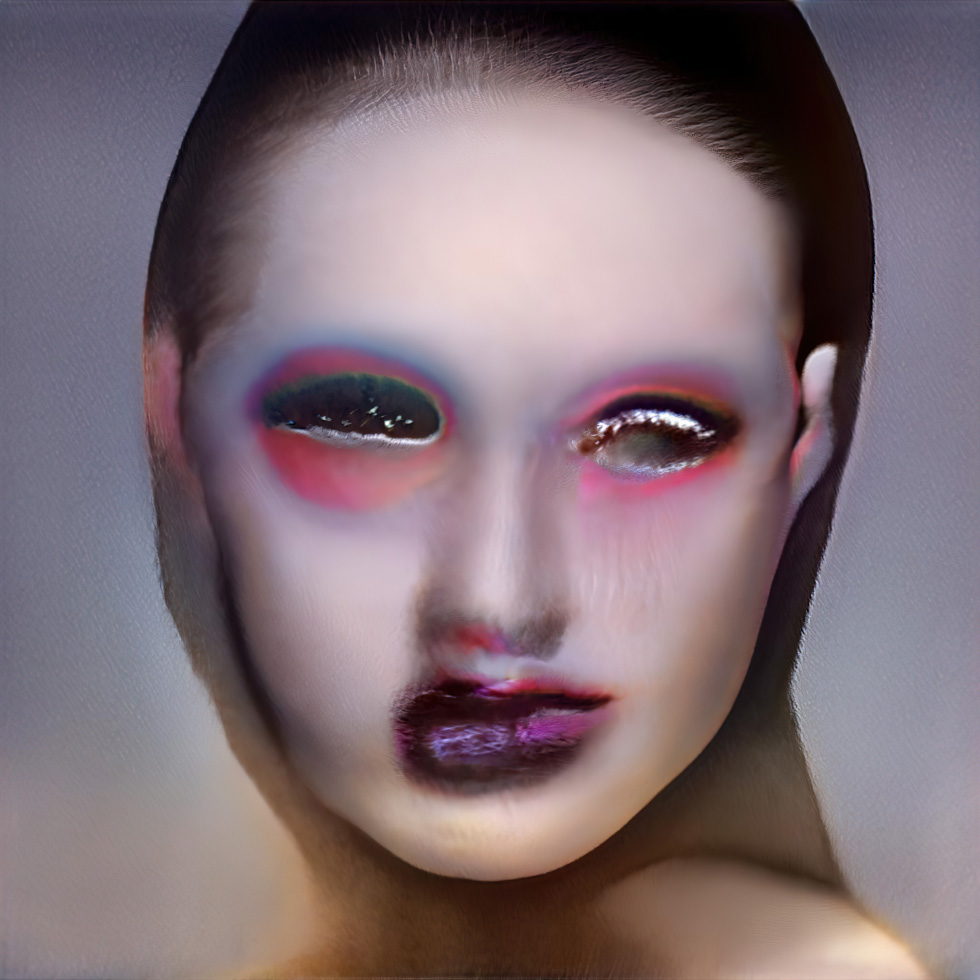
In your opinion, do AI’s creations have more to do with intimacy or anonymity?
The concept of engaging Artificial Intelligence in my way has something very intimate.
Images of human beings are "painted" and recreated by artificial intelligence, and interpreted into a new way of seeing. This generates its own kind of beauty, something that has never existed before, a kind of beauty that does not correspond to mass media or the biologically plausible. It feels as if one set of data is remembering the other.
I also see Artificial Intelligence as a collaborator. A.I. and I both contribute to creating something that would not be possible without the other. Even if you have control over many aspects of the output, A.I. will always add something unexpected of their own.
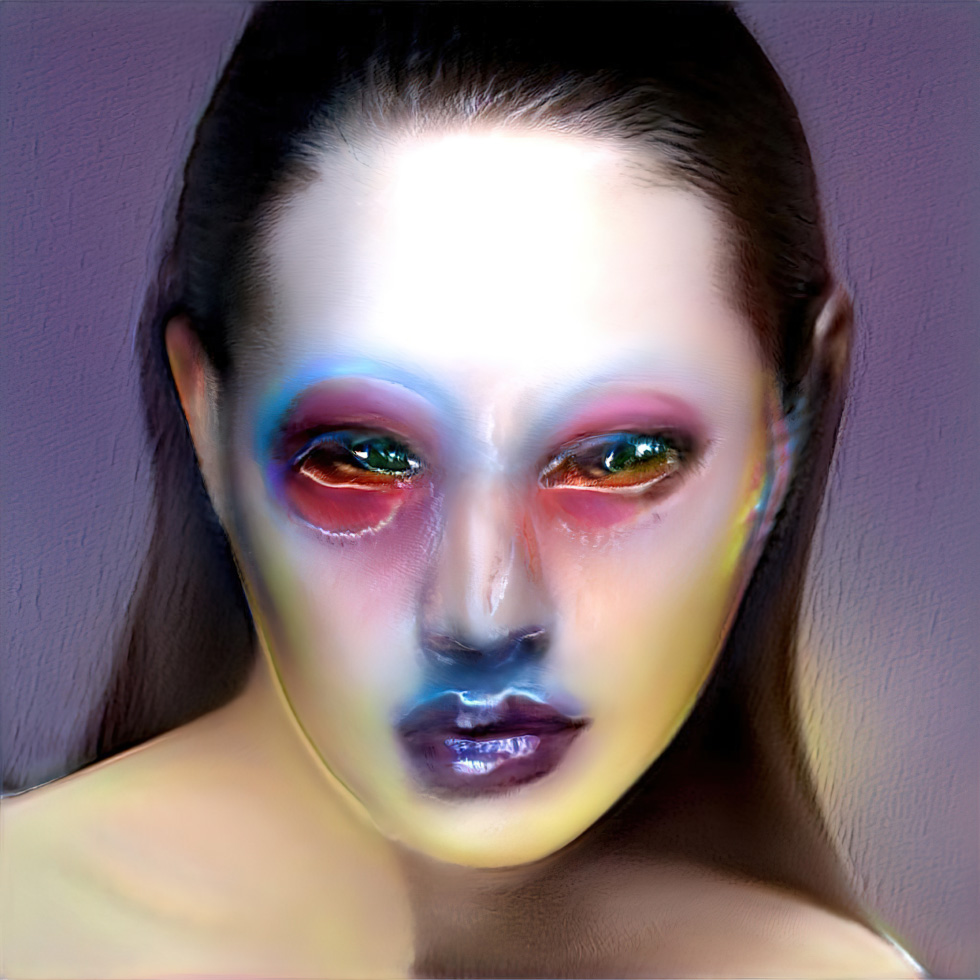
Back to the voyage through those skin’s layers we talked about before. This transformation of the epithelial tissue into a landscape reminds me of the same operation that Ballard performs in The Atrocity Exhibition as pointed out by Burroughs: «The line between inner and outer landscapes is breaking down». Do you feel this might be a good description of your work too? Who are your influences?
If AI was your mother what’s the first thing you’d tell her?
If A.I. would be my mother, we would live in a time where A.I. became an independent species. While it may seem impossible to imagine right now, the idea is incredibly fascinating that future beings could possibly be descended from an A.I. and a human being merging together. Therefore, I would probably say, what I say to my mother: I love you.